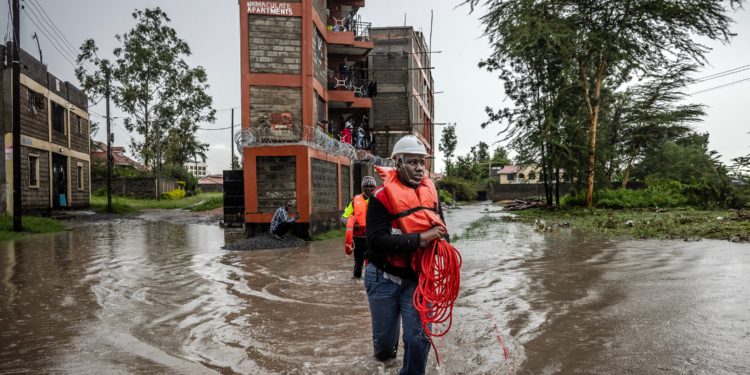As Kenyans and their homes face increasing flood risks due to heavy rainfall, the need for comprehensive flood insurance has never been more pressing. Climate change is exacerbating weather patterns, leading to more frequent and severe flooding events, making it crucial to safeguard one’s property and financial stability through flood insurance. Despite the vital protection these policies offer, flood insurance remains poorly understood and often overlooked.
Flood insurance is a specialized policy that protects renters, homeowners, and business owners from damage caused by flooding. Unlike standard homeowners’ insurance, which typically does not cover flood damage, flood insurance specifically addresses the harm to the integrity of the building and the loss of belongings inside. For renters, flood insurance only covers the contents of their home, not the building itself.
Determining the necessity of flood insurance in Kenya depends on several factors. The most significant is the location of the property. Homes situated in flood-prone areas, such as coastal regions, riverbanks, and low-lying areas, are at a higher risk and should seriously consider flood insurance. Additionally, researching the history of flooding in your area is essential. If your region has a history of recurrent floods or has been recently affected by flooding events, securing flood insurance is a prudent choice.
Mortgage requirements also play a crucial role. If you have a mortgage on your home, your lender may mandate flood insurance if your property is located in a high-risk flood zone. Compliance with this requirement is necessary to secure and maintain your mortgage. Furthermore, the value of your home and possessions should influence your decision. If your home represents a significant investment, protecting it from flood-related losses through insurance is wise.
Understanding the benefits of flood insurance can help make an informed decision. Primarily, flood insurance provides financial protection for your home’s structure, including the foundation, walls, floors, and built-in appliances. It can help cover the costs of repairs or even full rebuilding in the event of flood damage. Additionally, flood insurance includes coverage for personal belongings such as furniture, electronics, and clothing, alleviating the financial burden of replacing these items out of pocket. The peace of mind that comes with knowing you are protected against flood-related disasters is another significant benefit.
Before purchasing flood insurance, it’s crucial to understand the factors that can influence your premiums. Homes located in high-risk flood zones typically have higher premiums. The amount of coverage you choose will also impact your premium, with higher coverage limits resulting in higher premiums. The deductible, or the amount you must pay out of pocket before your flood insurance coverage kicks in, can affect your premium as well. Choosing a higher deductible can lower your premium but increases your initial cost in the event of a claim. Additionally, the elevation of your home relative to the base flood elevation can influence your premium, with homes built above the base flood elevation potentially qualifying for lower rates.
To purchase flood insurance in Kenya, homeowners and renters can turn to the National Insurance Corporation (NIC) or other private insurance companies. The first step is to assess your flood risk based on location, history, and potential consequences. Once you have determined your risk, contact insurance providers that offer flood insurance in Kenya to get quotes and compare coverage options. Completing the necessary application forms and providing the required information will follow. Finally, paying your flood insurance premiums as determined by the insurer will secure your coverage.


















